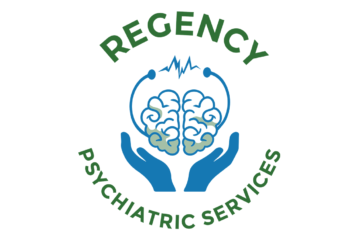When someone you care about has gone through a painful or terrifying experience, you might notice changes in their mood, sleep, or behavior that worry you. These could be signs of Post-Traumatic Stress Disorder (PTSD) — a mental health condition that can develop after trauma.
At Regency Psychiatric Services, we understand how difficult it can be to watch a loved one struggle. The good news is that PTSD is treatable, and recovery is absolutely possible with the right support. This article will help you understand what PTSD is, what to look for, and how to help your loved one find professional care and healing.
What Is PTSD?
Post-Traumatic Stress Disorder (PTSD) is a mental health condition that develops after someone experiences or witnesses a traumatic event such as an accident, natural disaster, abuse, assault, or military combat.
While it’s normal to feel upset after trauma, PTSD occurs when distressing symptoms last for more than a month and begin to interfere with daily life, work, or relationships.
Common Symptoms of PTSD
Every person experiences PTSD differently, but here are some common signs families often notice:
-
Re-experiencing the trauma: Nightmares, flashbacks, or unwanted memories.
-
Avoidance: Staying away from places, people, or conversations that remind them of the trauma.
-
Negative thoughts or mood: Feelings of guilt, hopelessness, or emotional numbness.
-
Heightened alertness: Irritability, difficulty sleeping, or feeling “on edge.”
You might also notice your loved one withdrawing socially, losing interest in activities they once enjoyed, or having trouble concentrating.
Causes & Risk Factors
PTSD can develop after any experience that feels overwhelming or life-threatening. Some common causes include:
-
Military combat or war exposure
-
Physical, emotional, or sexual abuse
-
Car accidents or natural disasters
-
Sudden loss of a loved one
-
Ongoing domestic violence
Risk factors such as prior trauma, lack of support, or pre-existing anxiety or depression can make someone more vulnerable to developing PTSD.
Diagnosis & When to Seek Help
If your loved one’s distress lasts for weeks or months and affects their daily life, it’s time to seek help from a qualified mental health professional.
At Regency Psychiatric Services, diagnosis involves a comprehensive evaluation — including symptom assessment, discussion of the traumatic event, and screening for related conditions such as depression or anxiety.
Early diagnosis helps prevent symptoms from worsening and opens the door to healing sooner.
How Families Can Help
When someone you love has PTSD, your care and understanding can make a huge difference. Here’s how you can offer support:
-
Listen without judgment. Let them talk at their own pace.
-
Learn about PTSD. Understanding the condition helps you respond with empathy.
-
Encourage professional help. Offer to help find a therapist or psychiatrist.
-
Be patient. Healing takes time — progress may come slowly, but it’s real.
-
Take care of yourself. Supporting someone with PTSD can be emotionally draining, so remember to care for your own well-being too.
If someone you love is struggling with symptoms of PTSD, don’t wait. Reach out to Regency Psychiatric Services to schedule an appointment or learn more about our trauma-focused therapies. Healing starts with a single step and we’re here to walk beside you.


